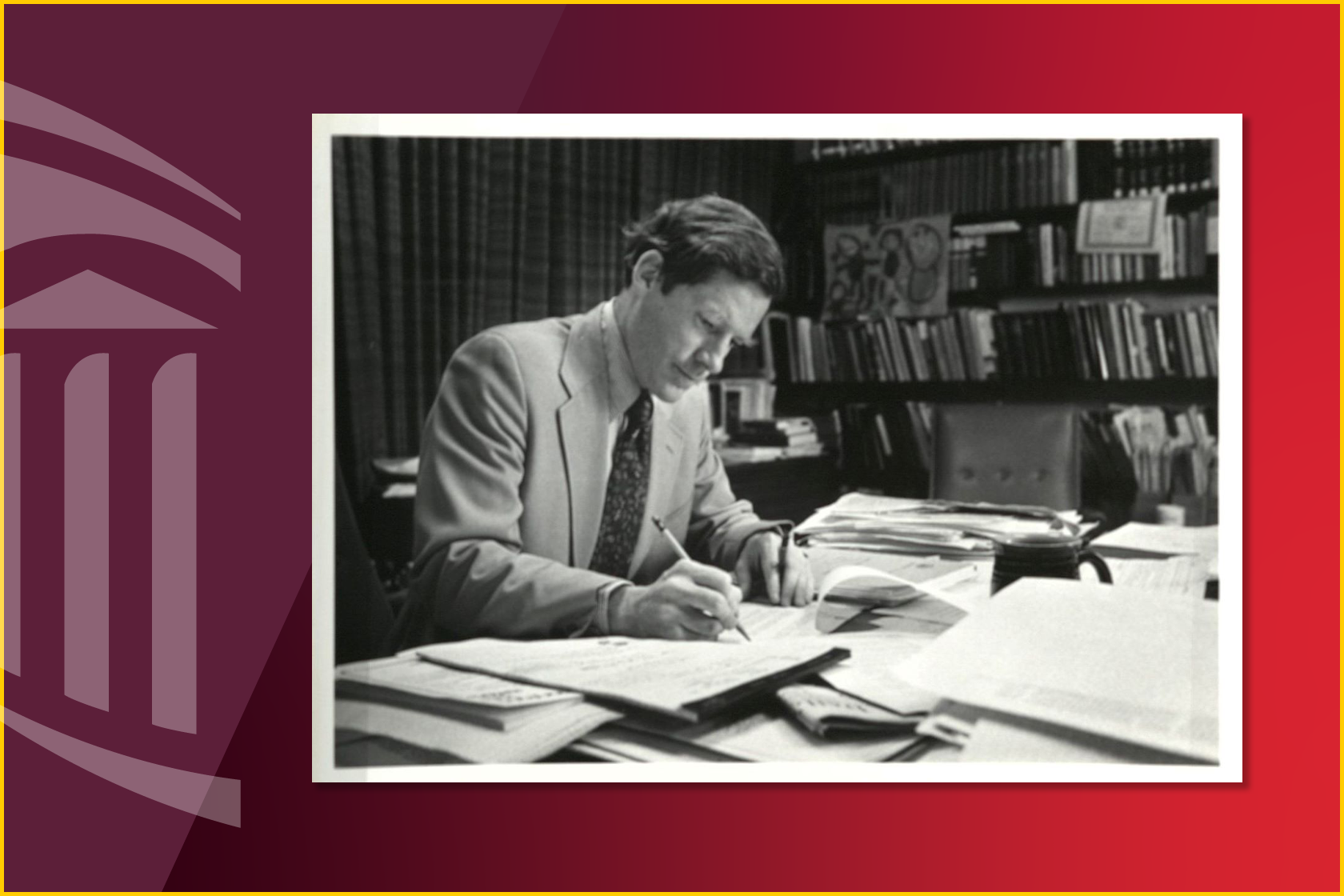Maryland Carey Law lost beloved former dean Michael J. Kelly in January 2023.
During Kelly’s tenure from 1975 to 1991, the law school created nationally recognized clinical, environmental, and health law programs; launched the Cardin Requirement, making clinical experience a condition of graduation; and became a national leader in integrating theory and practice. Additionally, Kelly significantly diversified and enhanced the faculty and student body.
Kelly is remembered for appreciating and supporting activities that make a law school great—excellent scholarship and teaching, attention to students, practice experiences, collegiality, and public engagement.
He kicked off one academic year by releasing a ceremonial hot air balloon on the law school’s front porch to student applause. He also held sessions on ethical lessons after each episode of the television program “L.A. Law.” They became so popular that Richard Dysart, who starred as Leland McKenzie in the series, became a fan of Kelly and presented a lecture at the school—on the similarities and differences between actors and lawyers.
Another accomplishment important to the law school’s cultural life was Kelly’s establishment of Westminster Hall. In 1974, the former church adjacent to the law school building was designated a historic landmark, sitting within the cemetery where Edgar Allan Poe and many prominent Maryland figures are interred. Working with Professor Emeritus Garrett Power, who went on to manage the project, Kelly established the Westminster Historic Preservation Trust, which raised money to refurbish the hall. Today, Westminster is physically attached to the law school and serves as a beautiful gathering place for everything from investitures to reunions, retirement banquets to wedding receptions.
In his own scholarly life, Kelly conducted a comprehensive study of legal ethics and legal education, and wrote two pioneering books, Lives of Lawyers and Lives of Lawyers Revisited, examining the differing cultures and leadership styles of law firms and the impacts these had on the legal services that clients received and the communities in which the law firms worked.
Kelly earned his law degree from Yale, a PhD from Cambridge University, and a BA from Princeton. Following law school, he spent three years in the office of general counsel of the Rouse Corporation and two years as assistant to the mayors of Boston and then Baltimore.
When Kelly left the law school, he became vice president and chief operating officer at Georgetown University. Dedicated to public service, he served as executive director of the Maryland Commission on Judicial Reform and chair of the National Senior Citizens Law Center. ■

